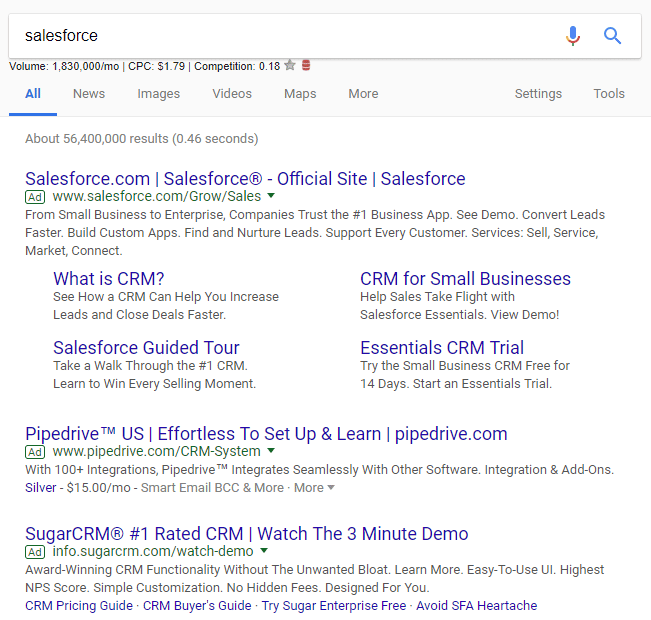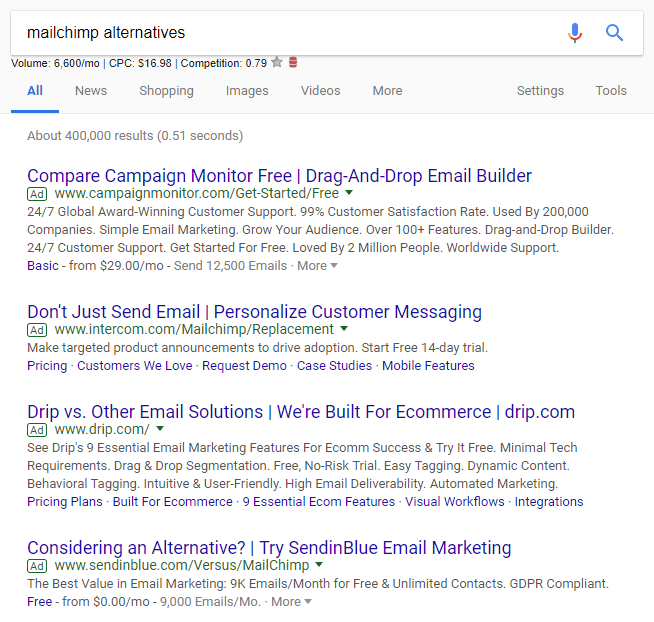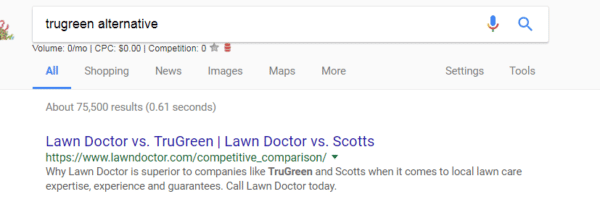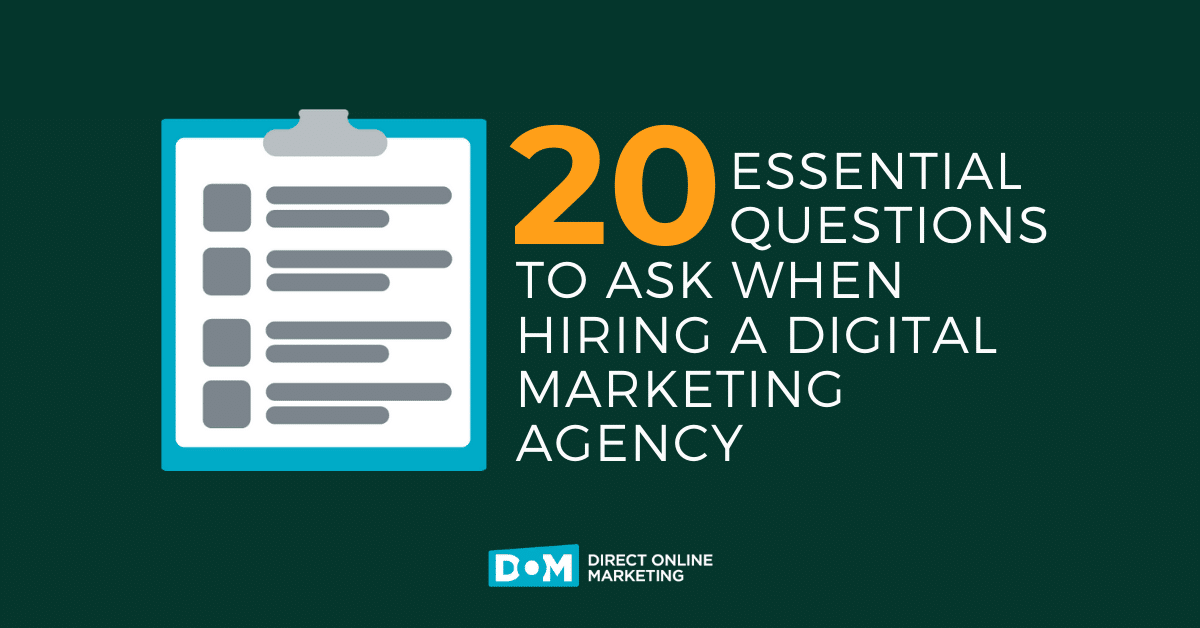Catch A Competitor Bidding And Ranking For Your Brand? Here’s Your Options. (Updated 2025)
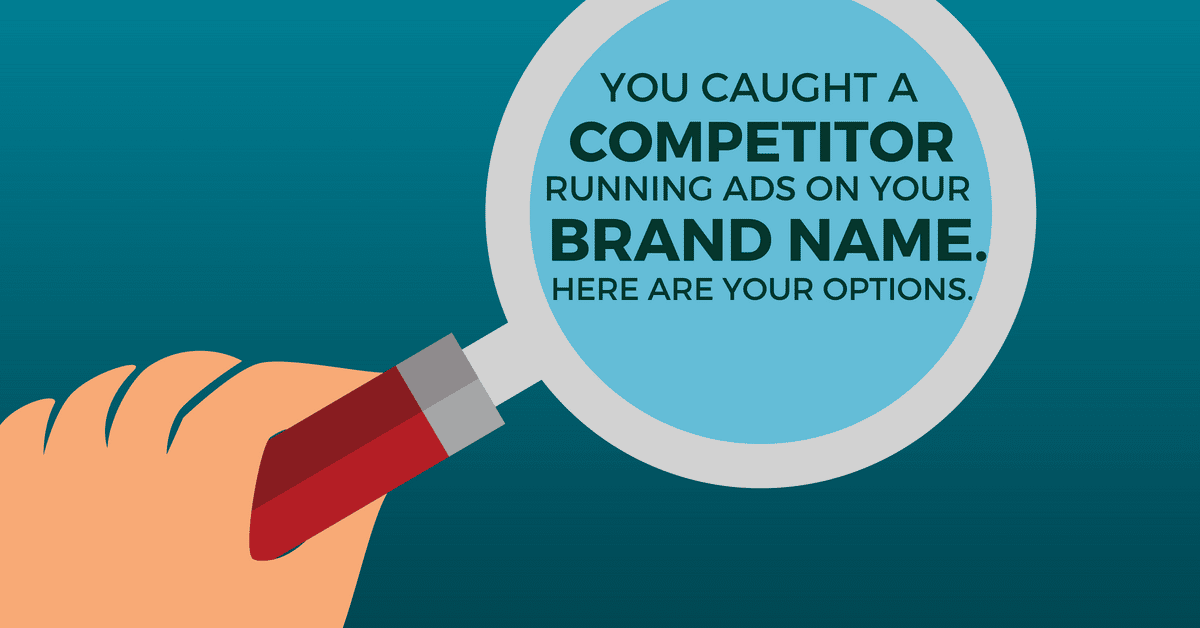
This Article Was Updated 01/03/2025
Can You Use Competitors’ Names In Google Ads? Can They Use Your Brand In Google Ads?
Branded search engine ranking positions (aka SERPs) can make or break your online presence within your market and your customers’ minds. But when you find a competitor using your brand name as part of their Google Ads or SEO campaigns, the stakes can get raised by a considerable margin.
When a user performs a search, visitors click on the first ads or organic results that seem most relevant to them.
The chances of winning that click are higher when you show up in top positions on relevant searches.
For many years brands have tried to undermine competitors’ names to rank higher and poach visitors through covert PPC and SEO tactics. When this happens, competitors getting search visibility on your brand name become a huge detriment to your sales by hijacking your brand’s reputation.
Leveraging competitor brand names via search engines is a common tactic and an issue that must be addressed to maintain both your rankings and your branding.
Savvy competitors — often with agencies behind them — combat these challenges and capitalize on the opportunity.
The Basics of Advertising and Doing SEO on Competitor Brand Names
Just to make sure we’re on the same page here, let’s take a brief second to fully define what we’re talking about. When we talk about competitor brand names, there are a few different keyword types to pay attention to if you want a full picture of which competitors are trying to take over your brand. The three most common types are:
- Competitor’s actual business names (like Pepsico buying ads or optimizing for Coca-Cola keywords)
- Competitor’s branded products (Pepsi buying ads or optimizing pages on Sierra Mist’s site for Sprite keywords)
- Competitor’s executive names or prominent thought leader names (Walmart running ads on searches of Jeff Bezos promoting CEO Doug McMillon)
The process in search advertising works the same as bidding on any other search term. You select the competitor term(s) you wish to bid on, set how much you’re willing to pay, and set up ads for that ad group. Voila, you can have your ad appear when someone searches for your competitors. There’s no cost to you until and unless someone clicks on one of your ads.
In SEO, the process is also very similar. Publish a piece of content on the subject matter, optimize it for the search term, and then build backlinks to the page so that it ranks well.
Legal Questions – Is This Allowed?
It’s important to understand that leveraging a competitor’s brand name is quite common in digital marketing.
You may be thinking to yourself at the moment — is this even allowed?
Yes, yes it is.
For the most part, using such advertising tactics is OK provided you are not deceptive in your practices. This means that if you are intentionally trying to mislead searchers, you may find yourself in hot water.
You need to make sure you’re clean in your ads and other marketing materials by being upfront about who you are. And doing that well means representing specific reasons customers often prefer you over your competition. If your name, your competitor’s name, or other branded term isn’t trademarked, then there’s no issue at all as far as the search engines are concerned.
Where courts have generally upheld advertisers’ rights to advertise — non-deceptively — on competitor brand names, this is America. Anyone can sue anyone for any reason, so legal costs are a real consideration.
By the way, if you’re really into this sort of thing, check out Eric Goldman’s Technology & Law blog. It’s the single best source on the Web for following these types of lawsuits regarding search engine marketing.
With that disclaimer and plug out of the way, let’s dive into how you can protect the reputation you’ve built against competitors trying to draft off of your brand.
Google Ads Options to Address Competitor Bidding
Campaigns explicitly created to target competitor brand searches are expensive and typically produce low numbers of conversions.
If this is happening to you, take solace in knowing that your competitor is spending some serious cash. But you still want to reclaim what is yours and reduce any adverse impacts on your brand.
When reacting to competitors running ads on your company’s or product’s name in Google Ads — and other search engines — you have some options.
Option 1: Protect Your Name by Running Ads on Your Own Name
Branded campaigns use your company’s brand name as a keyword. This play typically yields high conversions at a low cost per conversion – and the more your brand is known and trusted, the more impressive the results.
As you can see in the above example, Salesforce is running Google ads on its name, taking up the top ad position. Two competitors – Pipedrive and SugarCRM – also run on Salesforce keywords, positioning themselves as an alternative to this well-known CRM.
Searchers click on ads at the very top of a page more often than other positions. This is especially true on mobile because the visual real estate is so much smaller. By running these ads, Salesforce ensures searchers will see its ads first before seeing alternatives.
When you run ads on your name, you have a much better chance of influencing how searchers interact with your brand in the SERPs. This way you have more control of your campaigns, and you’ll always be first in search results on your brand.
Note: Some companies don’t like to bid on their name as they think that it’s an unnecessary cost, taking away conversions from organic search – clicks they don’t have to pay for. They also feel that bidding on their name is wasting money that could go toward reaching new searchers who aren’t looking for them. But if your competition is running on your name, do you really want people looking for you to see the competition first?
Option 2: Petition Google Ads for Trademark Protection
We highly recommend trademarking your brand if you haven’t done so already. Be aware that it can take up to six months or more to receive a trademark even if you don’t face other companies with similar claims.
The significant benefit of having a valid trademark as that there’s a formal process to petition Google to disallow your competitors from using your name in their ads if you own a trademark.
They can still run on your name even if you have this trademark protection, but at least they won’t be able to use your name in the ad copy, except in very limited circumstances.
If you’d like to learn more, check out our step-by-step guide on how to protect your trademark in Google.
Want a Premier Google Partner’s
help filing your trademark complaint?
Call 800.979.3177 today.
Option 3: Fight Fire with Fire
If you’re interested in going on the offensive, you can try to beat your competition at their own game and run ads on their branded terms. Just keep in mind that this tactic is prone to have the same high costs and challenges as discussed earlier. Here’s why.
Search advertising platforms allow you, in theory, to run on almost any keyword you want, including your competitors’ names. But in all cases, they want to make sure your keywords are relevant to your business. Otherwise, consumers will have a harder time finding information related to their searches and the whole PPC model starts crumbling.
And since you aren’t your competitor, Google will quickly give those keywords in your account a low Quality Score.
Keywords with a low Quality Score (caused by low clickthrough rates and other metrics) will end up costing you more than average on a per click basis. If your keywords are not relevant to your brand (i.e., because they aren’t your brand), then your search advertising platform will make you pay for it. In a best-case scenario, your quality score for competitor’s brand names may peak at a 3/10.
As we mentioned earlier, these kinds of campaigns come at a high cost and a lower chance of successful conversions. However, conversions don’t have to be the goal of this play.
Going on the offensive allows you to fight fire with fire if your competitors are already deploying these tactics. It will also draw some awareness to your brand for potential new customers who only knew about your competitor.
Note: It is possible to find a competitor’s ad come up when you search your own business name even if they don’t have you in their keyword crosshairs. If you see that, it’s probably one of two scenarios:
- Search retargeting (RLSAs): If you have been to the competitor’s website, their ads may be displaying based on your website habits.
- Similar audiences for search: The competitor may have a “similar to” retargeting audience and Google’s machine learning is considering your search habits similar to those of the competitor’s website visitors.
Either way, it’s the algorithm doing what it does best!
Other Pros and Cons of Bidding on Competitor’s Brand Names
Pros
- It can work. A lot of times people are interested in that competitor for a specific reason that won’t help you at all: trying to get hired, a vendor looking up directions, etc. But for the consumer doing research – or maybe a current, unsatisfied client looking up a phone number, the payoff could be handsome.
- It will jerk their chain. Double edged sword here (see Cons), but after seeing your ad on their name, internally they may devote a lot of executive resources figuring out what can be done. Plus, some people just really, really like ticking off their competitors.
- More competition should drive up their prices to bid on their name. While this means they’ll be spending more money they could be devoting elsewhere, their Quality Scores will likely be so much higher than yours, that the additional cost may not add up to much. Unless they weren’t advertising on their name at all before and decided to start doing so because of your ads.
Cons
- Your time. Your competitors may call you up and chew you out about this. Trust me, I’ve seen this time-suck happen and had advertisers flip their feelings about bidding on competitor names 180 degrees.
- Money. They may sue you or threaten to do so. While you could just adhere to their cease-and-desist and potentially be done with it, most companies will at least consult their attorneys about this. And if they don’t happen to be experts in search – and virtually none are, this can get really expensive. (BTW, we have consulted with attorneys about this in the past. If you’re an advertiser or lawyer needing help with this, give us a shout at 800.979.3177. We can also advise on how to broker a fair peace accord without the courts).
- They may start advertising on your name, which could send up your costs somewhat and also decrease your click throughs.
How to Respond When Competitors Use SEO to Leverage Your Brand
Several SEO tactics can solidify your SERP positions against competitors who want to rank in organic search for your brand name, or for when potential customers seek alternatives to your brand.
Much like the Google Ads tactics listed above, you can either take a defensive route or get aggressive with your SEO keyword targeting.
Choose wisely, as this is the perfect time to heed Uncle Ben’s wisdom — because great responsibility is bestowed upon those who wield these great SEO powers.
Option 1: Ranking for “Brand Alternative” Keywords
To dampen your competitors’ efforts, consider creating a page to rank for brand alternative searches specific to your brand name. This page still aims to promote your brand as the better solution, but the idea is to optimize it with your name and “alternative” keywords to make sure it outranks your sneaky competition.
You can also supplement this tactic with content development and link building strategies targeting ‘brand alternative’ keyword phrases. Guest posts and other authored contributions optimized for brand “alternative” keywords can help take up valuable search positions. These opportunities also are good places to score a link back to the page you already created.
By leveraging these two tactics, you can fortify your brand against alternative searches that your competitor targets with their SEO efforts.
Option 2: Fighting Back with Your Own “Brand Alternative” SEO Strategies
When your competitors step up their efforts against your brand, it’s time to consider going on the offensive from an SEO perspective. Some examples include previously mentioned tactics:
- Your competitor running ads on your brand name
- Optimizing a page on their website to rank for your brand name
- Leveraging backlinks to improve their ranking for your brand name
Just like how competitors may create content on their site to rank for keywords related to your brand, you can do the same.
You can accomplish this one of two ways:
- Optimize for “competitor” + “alternative(s)” — Here you create pages specifically designed to target search users looking for alternatives to your competitor by optimizing for their brand names and “alternative” (e.g. “picasa alternative,” “photoshop alternative,” etc.). This way, your brand will begin to show up when people go to search for their name.
Below is an example of how Lawn Doctor compares itself to several competitors.
- Optimize for competitor weaknesses — In some cases, search users may be considering a competitor, but also seeking choices.
For example, say you are a project management software looking to position yourself against Trello, a highly recognized competitor. You could try creating content that aims to rank for keywords such as “trello issues.”
Be warned: snatching a top search engine ranking using this approach is highly unlikely without some investment in aggressive link building tactics. But, this approach will undercut your competitor in the following ways:
- They will lose long tail organic search traffic.
- Awareness of your product will increase within their customer and prospect base.
- You will convert new business opportunities from prospects who were not initially considering your brand as a solution.
Final Thoughts — Consult Your Legal Team
Please note: we recommend you consult your legal team to assess risk before trying the more aggressive tactics listed above. Keep in mind that there are times where using terms and phrases — specifically trademarked words, branded words — could have some legal implications.
What ends up happening in situations like this is that – whether mediated expensively through attorneys or done from President to President – a truce is called. The downside is that it needs to be brokered with each competitor as it can’t be done through the search engines (other than if there’s a legitimate trademark complaint to be filed).
SERPs can make or break your brand so make sure you are taking the necessary measures toward protecting them. Starting with a great defense (owning real estate and top ads on your name) is the best offense. Ultimately, though, it’s your brand, and only you can decide how to solidify your place in Google search.
Get Paid Search Advertising Services
If you’re interested in learning how you can drive better results with search engine marketing and our paid search advertising services then please schedule a digital marketing consultation. Or, to get more information on this topic, contact us today for a free consultation or learn more about our status as a Google Partner Agency before you reach out.
Need SEO or PPC services for your B2B business? Learn more about why we are The Best Digital Marketing Agency For B2B Businesses.

